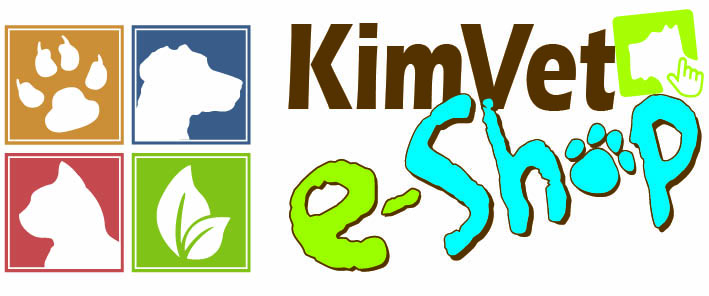
The Dangers of Human Foods and Plants to Pets
Pet poisonings from household/human food is quite prevalent. People often make the mistake of thinking that people food is okay for pets. Sometimes it is, and sometimes it isn’t.
Harmful Food:
Milk is not easily digested by most adult animals and can cause them to develop diarrhoea, not to mention the negative impact the excessive calcium can have on growing animals.
Though not a poison, bones are VERY DANGEROUS. They can lodge in a dog’s passageways or cut it’s intestines causing extreme pain and discomfort, possibly leading to death.
Chocolate is responsible for countless pet poisonings. Theobromine and caffeine are concentrated in dark and baking chocolate.
Onions and garlic can destroy a dog’s red blood cells, leading to anaemia.
Rich, fatty foods such as chicken skin or gravy can cause pancreatitis and inflammation of the digestive system and can be very painful and serious.
Grapes and raisins can lead to loss of appetite, vomiting, diarrhoea, abdominal pain and acute renal failure in dogs, possibly resulting in death.
Coffee is also dangerous to animals.
Nicotine is a stimulant that can increase the heart rate, leading to collapse and, in the worst case, death.
Avocado is dangerous to the heart.
Alcoholic beverages should be kept away from animals at all times.
Be as vigilant at poison-proofing your house for a pet as you would be for a child!
Common Symptoms:
Some of the most common signs of poisoning include gastrointestinal signs (vomiting and diarrhoea), neurological signs (tremors, incoordination, seizures, excitability, depression), respiratory signs (coughing, sneezing, difficulty breathing), skin signs (inflammation, swelling), liver failure (jaundice, vomiting) and kidney failure (increased drinking, loss of appetite and weight loss).
Some poisons act on more than one body system, and so can produce any combination of the above signs.
The most common malicious poisoning one tends to see in veterinary practice is with use of Temik, also known as “Two Step”. This was previously used as an insecticide on farms. It looks very similar to “poppy seeds” and can quite easily be bought illegally. Burglars place it in meat which is then thrown into your yard. Signs of poisoning are usually seen within 5-20 minutes.
Common Symptoms:
The most common signs are: Excessive salivation, vomiting, abdominal pain, diarrhoea, not wanting to eat, runny eyes/nose, difficulty breathing/blue gums, muscle twitching, restlessness and in many cases paralysis which inevitably leads to death.
Harmful Plants:
There are many household items and plants that can be harmful to your pet.
Although plants are great, many are also poisonous to pets. Many plants that are not toxic to people may cause serious medical problems in pets, such as renal failure, irregular heartbeats, cardiac shock and even death.
Some poisonous plants include the following:
Lilies
Members of the Lilium family are considered to be highly toxic to cats. While the responsible component has not yet been identified, it is clear that with even ingestion of very small amounts of the plant, severe kidney damage could result.
Marijuana
Ingestion of Cannabis by companion animals can result in depression of the central nervous system and incoordination, as well as vomiting, diarrhoea, drooling, increased heart rate and even seizures and can even result in a coma.
Chincherinchee
This plant is very dangerous. It contains toxins that can cause intense gastrointestinal irritation, drooling, loss of appetite, depression of the central nervous system, convulsions and cardiac abnormalities. These signs are often so severe that it can lead to death.
Azalea/Rhododendron
Members of this plant species contain substances which can produce symptoms such as vomiting, drooling, diarrhoea, weakness and depression of the central nervous system in animals. Severe azalea poisoning could ultimately lead to a coma and death from cardiovascular collapse.
Oleander
All parts of the oleander plant are considered to be toxic, as they have the potential to cause serious effects—including gastrointestinal tract irritation, abnormal heart function, hypothermia and even death.
Amaryllis
A common garden plant, Amaryllis species contain toxins that can cause vomiting, depression, diarrhoea, abdominal pain, hyper-salivation, anorexia and tremors.
Chrysanthemum
These popular blooms may cause gastrointestinal upsets, including drooling, vomiting and diarrhoea, if eaten. In certain cases depression and loss of coordination may also develop if enough of any part of the plant is consumed.
Ivy
Ivy contains toxins that, should pets ingest it, can result in vomiting, abdominal pain, hyper-salivation and diarrhoea.
Cycads
Cycads cause liver failure, especially in puppies.
Basic First Aid:
If your pet does chew on a plant, immediately remove the plant from its mouth and rinse the mouth gently with water. Identify the plant your pet ate and call your veterinarian.
Watch for excessive or foamy salivation and changes in the skin around the mouth, eyes or paws.
This is by no means an inclusive list.
There are many other things that could be potentially poisonous to your pet.
The most important thing for you as a pet owner to remember is that you need to stay vigilant and act quickly and calmly when it comes to poisonings.
For more information on poisonings in pets, please check out our blog post – https://kimvet.co.za/pet-poisonings/
Resources:


